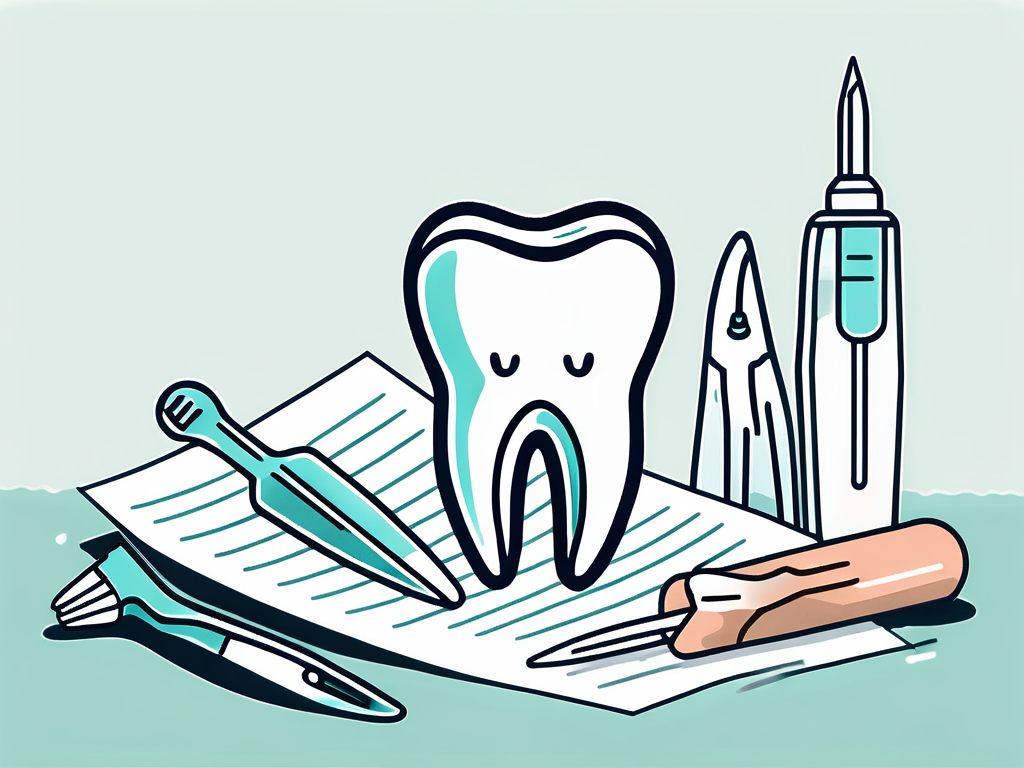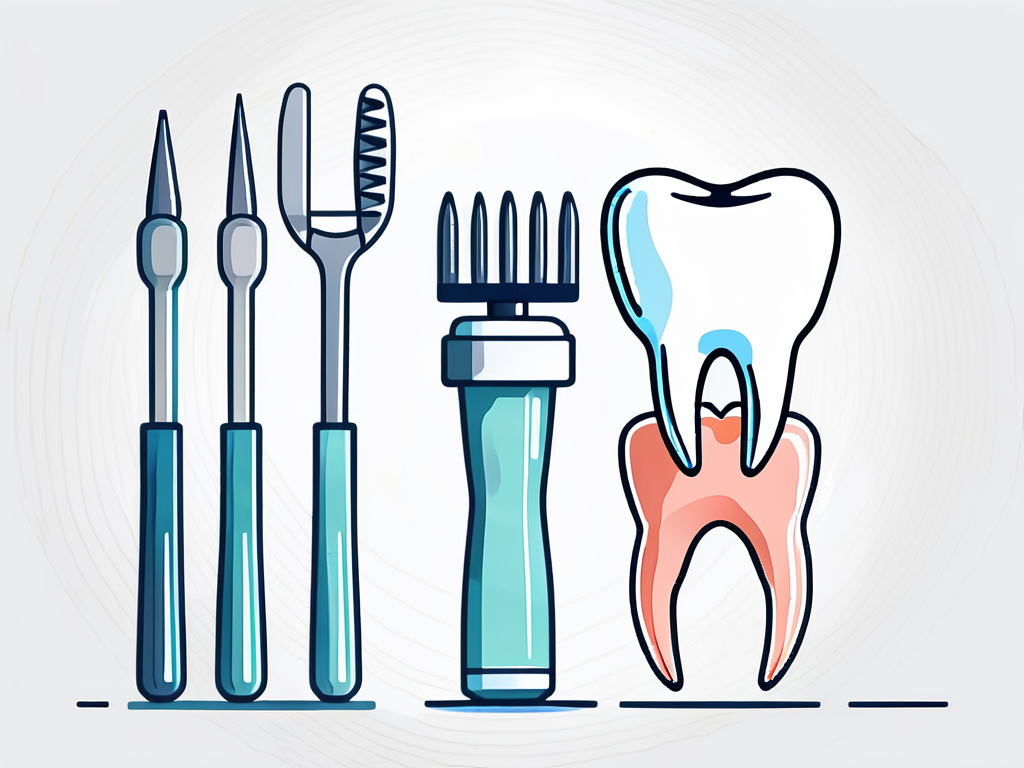Mouth guards are an essential dental appliance that can help protect your teeth from damage caused by grinding or clenching. However, the cost of a mouth guard can be quite high, making it important to explore options for insurance coverage. In this article, we will provide you with a comprehensive guide on how to get a mouth guard covered by insurance.
Understanding the Basics of Dental Insurance
Before delving into the specifics of mouth guard coverage, it is crucial to have a basic understanding of dental insurance. Dental insurance is a type of health insurance that specifically covers dental expenses. Depending on the plan you have, dental insurance may provide coverage for a wide range of services, including preventive care, fillings, extractions, and in some cases, mouth guards.

Having dental insurance can help individuals offset the costs associated with routine dental care as well as unexpected procedures. It provides a financial safety net for individuals and families to ensure they can maintain good oral health without worrying about the high costs of dental treatments.
What is Dental Insurance?
Dental insurance is a form of health coverage designed to help individuals manage the costs associated with dental care. It usually operates on a co-payment system where the insurance company pays a portion of the dental expenses, while the policyholder is responsible for paying the remaining balance.
One of the key benefits of dental insurance is that it encourages regular dental check-ups and preventive care, which can help prevent more serious and costly dental issues in the future. By promoting preventive measures, dental insurance aims to maintain overall oral health and reduce the need for extensive treatments.
Types of Dental Insurance Plans
There are several types of dental insurance plans available, including Preferred Provider Organization (PPO) plans, Health Maintenance Organization (HMO) plans, and Dental Indemnity plans. Each plan has its own set of benefits, coverage options, and limitations. It is important to review your specific dental insurance plan to understand what is covered and what is not.
PPO plans offer a network of dentists that policyholders can choose from, providing more flexibility in selecting a dental provider. HMO plans, on the other hand, require individuals to choose a primary care dentist and obtain referrals for specialist visits. Dental Indemnity plans offer the most flexibility in terms of choosing a dentist but may have higher out-of-pocket costs.
The Role of Mouth Guards in Dental Health
Mouth guards, also known as dental splints or occlusal guards, are custom-fitted oral appliances that are worn during sleep to protect the teeth from grinding or clenching, a condition called bruxism. Bruxism can lead to tooth pain, sensitivity, enamel erosion, and even tooth fractures. By wearing a mouth guard, you can prevent these issues and maintain the health of your teeth.

Moreover, mouth guards not only protect your teeth but also help alleviate the strain on your jaw muscles and joints caused by bruxism. This can reduce the risk of developing temporomandibular joint (TMJ) disorders, which can lead to jaw pain, clicking sounds, and difficulty opening or closing the mouth.
Why You Might Need a Mouth Guard
Mouth guards are recommended for individuals who experience teeth grinding or jaw clenching during sleep. Common signs of bruxism include waking up with headaches, sore jaw muscles, worn-down teeth, or chipped enamel. If you exhibit any of these symptoms, it is important to consult with your dentist to determine if a mouth guard is suitable for you.
Furthermore, untreated bruxism can not only damage your teeth but also result in disrupted sleep patterns, leading to fatigue and decreased quality of life. By addressing bruxism with a mouth guard, you can improve your overall well-being and protect your oral health in the long run.
Different Types of Mouth Guards
There are three main types of mouth guards available: stock mouth guards, boil-and-bite mouth guards, and custom-made mouth guards. Stock mouth guards are pre-formed and come in various sizes but may not provide the best fit. Boil-and-bite mouth guards can be softened in hot water and then molded to your teeth for a somewhat customized fit. However, custom-made mouth guards, created by a dental professional, offer the optimal fit and comfort.
Custom-made mouth guards are crafted based on impressions of your teeth, ensuring a snug fit that is comfortable to wear throughout the night. They are typically made from durable materials that can withstand the forces of grinding and clenching, providing long-lasting protection for your teeth. Additionally, custom mouth guards can be tailored to address specific issues such as uneven bites or jaw misalignment, offering personalized solutions for your unique dental needs.
Insurance Coverage for Mouth Guards
While dental insurance plans may vary, some policies do provide coverage for mouth guards. However, it is important to note that coverage levels and requirements differ between insurance providers. Understanding your insurance coverage for mouth guards will help you determine how to proceed with obtaining coverage.
When exploring insurance coverage for mouth guards, it's beneficial to delve deeper into the specifics of your policy. Some insurance providers may require pre-authorization for mouth guard coverage, while others may have certain criteria that need to be met before approval. Being aware of these details can streamline the process and prevent any unexpected surprises.
Factors Influencing Insurance Coverage
The extent of insurance coverage for mouth guards depends on several factors. Some common factors include the type of plan you have, the specific terms and conditions outlined in your policy, and whether mouth guards are considered medically necessary for your condition. It is crucial to review your insurance policy or consult with your insurance provider to understand the specific coverage available to you.
Moreover, it's worth noting that insurance coverage for mouth guards may also be influenced by the provider network. Visiting an in-network dentist or specialist for your mouth guard needs could potentially result in higher coverage levels compared to an out-of-network provider. Checking with your insurance company to see which providers are in-network can aid in maximizing your benefits.
Typical Insurance Coverage for Mouth Guards
Typically, dental insurance plans cover a portion of the cost for mouth guards. The coverage percentage can range from around 50% to 80%, depending on your plan. However, it is essential to check if your plan has a waiting period, annual limitations, or any other restrictions that may affect your coverage.
Furthermore, some insurance plans may offer coverage for mouth guard replacements or adjustments within a specified timeframe. Understanding these additional benefits can help you make informed decisions about your dental care and financial responsibilities. It's advisable to keep track of any documentation related to your mouth guard coverage to facilitate smooth communication with both your dental provider and insurance company.
Steps to Get Your Mouth Guard Covered by Insurance
Now that you have a grasp of dental insurance basics and understand the role of mouth guards in dental health, let's explore the step-by-step process for getting your mouth guard covered by insurance.
Checking Your Insurance Policy
The first step is to carefully review your dental insurance policy documentation. Familiarize yourself with the coverage details, including the type of plan you have, the coverage percentages, any limitations or restrictions, and the process for submitting a claim. You want to ensure that mouth guards are included in the covered services list.
Consulting with Your Dentist
After reviewing your insurance policy, schedule an appointment with your dentist to discuss your need for a mouth guard. Your dentist will perform a thorough examination of your teeth and jaws to confirm the presence of bruxism. They will also provide insights into the best type of mouth guard for you and any additional treatment options if necessary.
Submitting a Claim for Your Mouth Guard
Once your dentist recommends a mouth guard, ask their office staff for assistance in submitting a claim to your dental insurance provider. Provide all the necessary documentation, including the treatment plan, cost estimate, and any supporting documentation such as X-rays or exam notes. Be sure to follow the proper protocol outlined by your insurance provider to maximize your chances of getting coverage.
Dealing with Insurance Denials
In some cases, insurance claims for mouth guards may be denied. It can be frustrating, but do not lose hope. There are steps you can take to appeal the denial and potentially receive the coverage you deserve.

Reasons for Insurance Denials
Insurance denials can occur for various reasons. Some common reasons include inadequate documentation, lack of medical necessity, or limitations and exclusions specified in your insurance policy. Review the denial letter from your insurance provider to understand the specific reasons for the denial.
Appealing an Insurance Denial
If your claim is denied, the next step is to appeal the decision. Contact your dental office and insurance provider to discuss the denial and determine the necessary steps for appeal. The appeals process typically involves submitting additional supporting documentation, a letter of medical necessity from your dentist, and a detailed explanation of why you believe coverage is warranted. Be persistent and provide all the relevant information to strengthen your case.
In conclusion, getting a mouth guard covered by insurance requires understanding the basics of dental insurance, knowing the role of mouth guards in dental health, being aware of the insurance coverage available for mouth guards, and following the steps to submit a claim. While insurance denials may occur, it is important to persist and appeal to potentially secure the coverage you need. By taking these steps, you can protect your teeth and achieve a healthy smile without the burden of significant out-of-pocket expenses.













